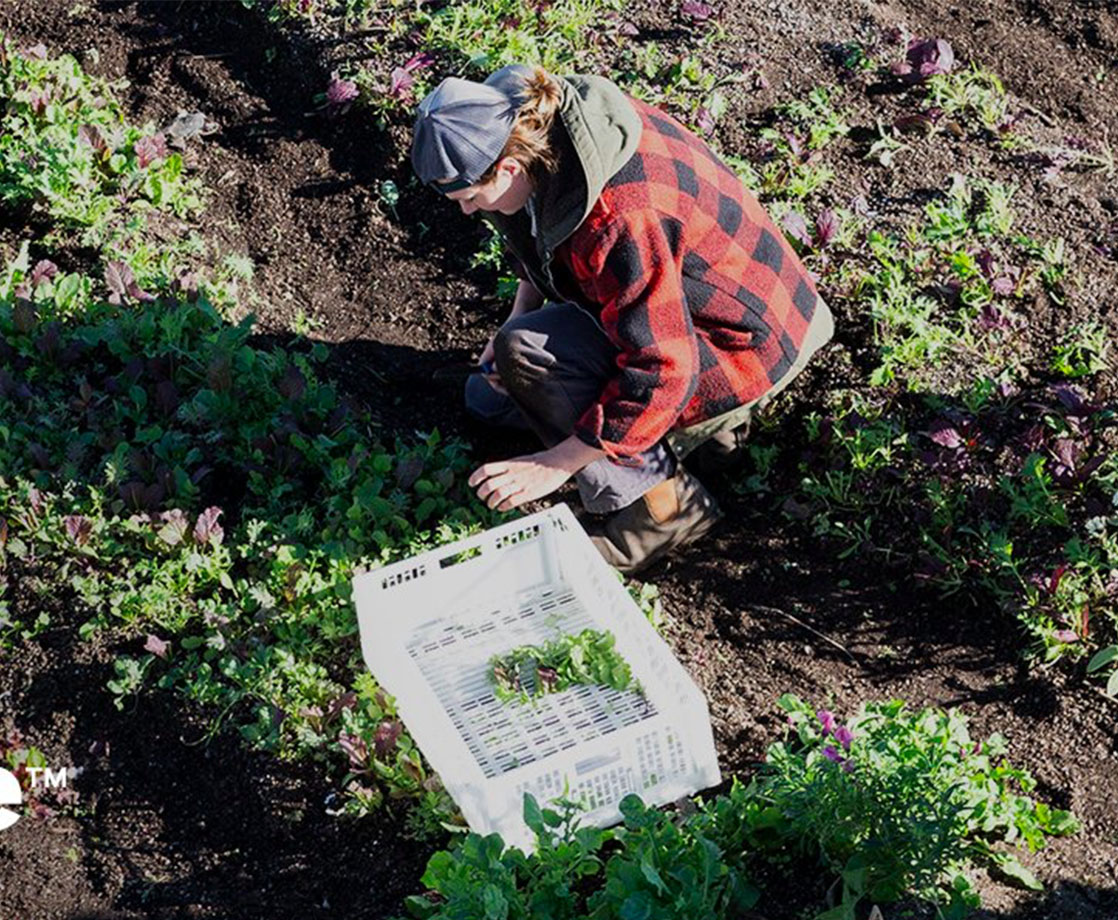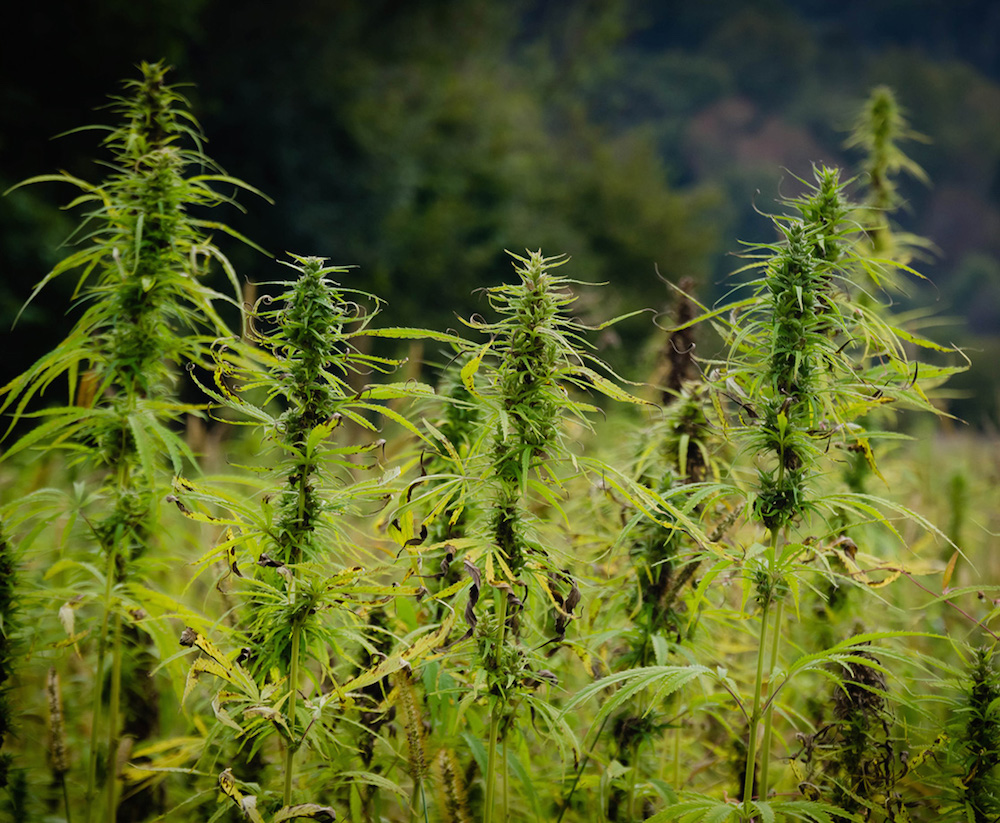Last Friday, Tweed, the Canadian brand under the umbrella of the largest publicly traded cannabis stock in the world, Canopy Growth Corporation, made a major announcement. The company took the high holiday as an opportunity to share its own incredible 4/20 commitment to the communities it serves, in the form of Tweed Collective.
According to their press release, the Tweed Collective is "an initiative founded on the principles of progress, growth, and community development," with the goal of "transforming where and how we live in meaningful ways" by investing $20 million over the next four years in socially responsible initiatives.
MERRY JANE sat down with Canopy Growth Corp. Co-Founder, Chairman & CEO Bruce Linton to find out more about the Tweed Collective, how Tweed is already positively participating in Canadian communities, and corporate social responsibility in the cannabis industry.

MERRY JANE: Could you explain why the Tweed Collective initiative was launched on 4/20? What was the spark?
Bruce Linton: We had a long chat about "What does the future of 420 look like?" And that's where we got the idea of, "Why don't we just think about the next four years making 20 communities really amazing and deploying capital and focus on aligning them with producing cannabis around the globe."
The best places are going to be in countries that want us, and in communities that need us. We would prefer to buy an existing building that's been derelict for years in a community with a high unemployment rate. And ideally, with a bunch of utilities that are under-utilized, meaning that the electrical and water grid aren't fully drawn on. What we're really saying is where you don't have great jobs, and where your buildings aren't being put to their best purpose, here we come and we're gonna create hundreds of jobs at each location.
Can you give an example?
The first building I bought in Smith Falls, Ontario was empty for five years before I bought it. The town had a really challenging unemployment scenario, and then we came along. Now, at that site, we've created 250 jobs. Everybody who works there, and everyone who works at our company, gets a paycheck and gets treated properly, but they also get equity. In the last year, we've probably contributed over $100,000 to local activities from food banks, to women's shelters, to the live theater environment. The town is prospering, and we're prospering. That's happened again in Niagara, where we bought an abandoned greenhouse. It's happened again in Yorkton, Saskatchewan where we bought an abandoned dairy facility. It's happened again in Denmark where we bought a bankrupt greenhouse formerly used to grow orchids.
Even though it's only been a few days since the announcement, how has the Tweed Collective been received so far? What kind of feedback have you got?
Oh my god, I've already had two mayors ask me about it! If we're already in your community, and you know that we're actually legit, you're not reluctant as an elected official — you're eager. You see this as another great thing [about the project].

The formation of Tweed Collective and your policy of offering sliding scale pricing on medical cannabis really demonstrates Tweed's ongoing commitment to corporate social responsibility. What do you think corporate social responsibility (CSR) in the medical and recreational cannabis space should entail?
We started that program [sliding scale pricing for medical patients] in Canada, and I think we probably started it for the federally regulated world. We also think about how to make a purchasing process that helps the local community.
It started with the very first day when I bought the building. I wouldn't let them rent porta potties from an hour away until they could confirm to me that there was nobody within a closer distance that had these. My logic was that if we took that as our purchasing strategy from day one, and the guy who ran the porta potty business actually had a better business, he might actually go out for dinner with his wife more often. Then we'd start to see better restaurants in the town. If it's a little bit more costly but local, we buy it.
Do you think you have to be even more conscious of that as a cannabis company because it may be a bit harder to convince certain residents?
It is because of that, but it's also because the communities where we go have had employment or development challenges and are actively looking to improve things. There's a lot more direct drive when spending a dollar in that community rather than sending it to an already existing, diversified, large center. I think CSR has to be related to everything from procurement, to how you associate and incentivize your staff to be a participant.
The biggest event at our company every year isn't the Christmas party. It's the Thanksgiving potluck. We're a pot company, and they think it's hilarious. The staff organized the first potluck five years ago, and the deal was that if each person brought in whatever they can make, then as a company we would buy the turkey, potatoes and gravy. The first year it was 25 people I had to buy turkey for, the next year it was about 100. Last year, I think we bought turkey for 600 people. In the run up to it, everybody is divided into groups, and every group has a challenge to be better than the other groups in terms of total numbers of kilograms and total numbers of dollars that they contribute to the food bank. We're talking about literally tons of food, and I think this year was $15,000 of food.
I guess that's what separates the people who got into the business because they truly believe in it from the people who just want to make a buck.
When you enter a business, you run it professionally, you make sure that everyone is treated well. You have to become fully immersed in it. I previously had a business that was trying to resolve the water and wastewater infrastructure for emerging communities around the world. I ended up becoming so immersed in it that I became the Canadian representative on the World Bank's water and sanitation division. I spent three years as the only non-academic non-government employee on the World Bank water and sanitation advisory board. Why? Because you have to make sure you get this shit happening, get in the deep end. I find that ignorance is annoying, and our objective must be education and exiting prohibition without breaking or bending any rules. When you do it elegantly, there's little chance that it won't happen.
It sounds like when you get into something, you get into it 100%. And that you want to encourage real change.
Stairs are for getting out of the pool, my man. Never walk down the stairs, fucking jump in!
Given that Tweed's greenhouse operates in an environmentally-friendly manner, will this be a criteria by which projects/artists/creators will be chosen?
It's the triple bottom line. Our intent to be incredibly environmentally responsible, have as small a carbon footprint as possible, and to use as little water as possible as our bottom line makes everything less costly. We harvest all the rainwater we can, and use all the scrubbed CO2. I think that you'll find that scaled, astute operators actually don't hurt the environment even a tenth as much per gram as the small producers do. It's because there's a whole bunch of functional things that work at scale in a very different way than they work with 100 or 1000 plants. For example, if I'm going to have a really large greenhouse, I'm gonna use a lot of natural gas to heat it, but I'm gonna scrub all of it. At our greenhouse in Quebec, we don't use any natural gas to heat the space. We take a waste wood product, combust if for heat, and then scrub the CO2 to help the plants feel happy. You can't do that on a small basis.
What are your thoughts on the American market at the moment?
We're trying to end prohibition here in Canada. So if I'm actively participating in the current prohibition market, and Canada has a big history of doing that in the booze world, I'm not doing that in the marijuana world. The reason is I think that if you do it right — and we're a great and shining example — the effect may be that we're actually more helpful to the American solution than we are to contributing to the supply of capital.
The Tweed Collective is looking for artists, creators, builders, and partners with bold ideas for their community to come share their vision at TweedCollective.com
For more on Tweed and Canopy Growth, visit their websites here and here
Follow Hadrien Turner on Twitter











